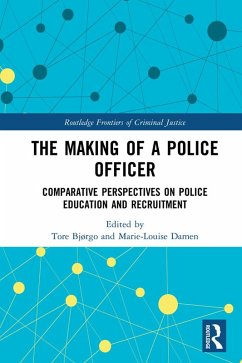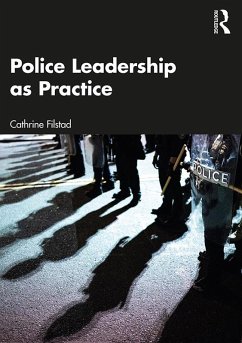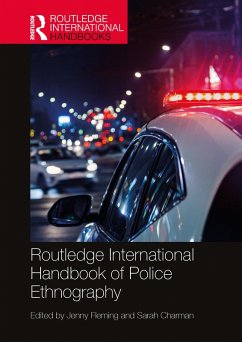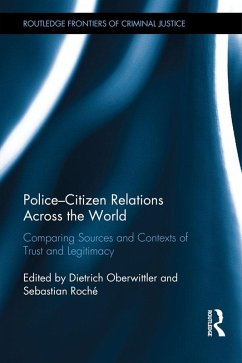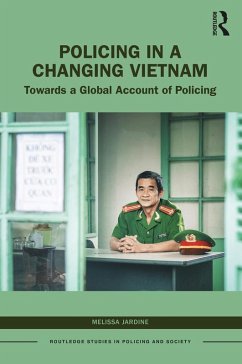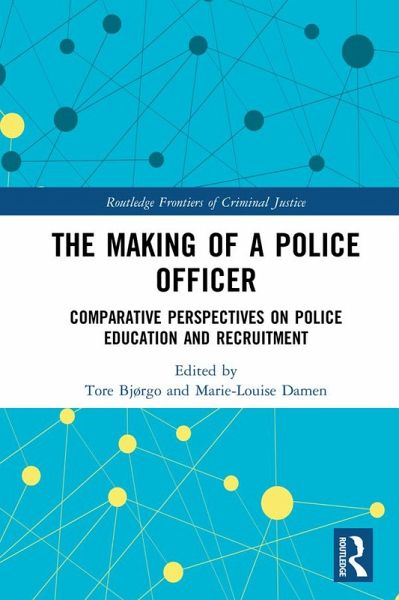
The Making of a Police Officer (eBook, PDF)
Comparative Perspectives on Police Education and Recruitment
Redaktion: Bjørgo, Tore; Damen, Marie-Louise
Versandkostenfrei!
Sofort per Download lieferbar
41,95 €
inkl. MwSt.
Weitere Ausgaben:

PAYBACK Punkte
21 °P sammeln!
Does a more academic type of police education produce new police officers that are reluctant to patrol the streets? What is the impact of gender diversity and political orientation on a police students' career aspirations and attitudes to policing? These are some of the questions addressed by this longitudinal project, following police students in seven European countries. The unique data material makes it possible to explore a wide range of topics relevant to the future development of policing, police education and police science more generally.Part I presents an overview of the different goa...
Does a more academic type of police education produce new police officers that are reluctant to patrol the streets? What is the impact of gender diversity and political orientation on a police students' career aspirations and attitudes to policing? These are some of the questions addressed by this longitudinal project, following police students in seven European countries. The unique data material makes it possible to explore a wide range of topics relevant to the future development of policing, police education and police science more generally.
Part I presents an overview of the different goals and models of police education in the seven participating countries. Part II describes what type of student is attracted to police education, taking into consideration educational background, political orientation and career aspirations. Part III shows the social impact of police education by examining students' orientations towards emerging competence areas; students' career aspirations; and students' attitudes concerning trust, cynicism and legalism.
The overall results show that police students are strikingly similar across different types of police education. Students in academic institutions are at least as interested in street patrolling as students in vocational training institutions. Gender and recruitment policies matters more in relation to career preferences than education models. The national context plays a more important role than the type of police education system. Written in a clear and direct style, this book will appeal to students and scholars in policing, criminology, sociology, social theory and cultural studies and those interested in how police education shapes its graduates.
Part I presents an overview of the different goals and models of police education in the seven participating countries. Part II describes what type of student is attracted to police education, taking into consideration educational background, political orientation and career aspirations. Part III shows the social impact of police education by examining students' orientations towards emerging competence areas; students' career aspirations; and students' attitudes concerning trust, cynicism and legalism.
The overall results show that police students are strikingly similar across different types of police education. Students in academic institutions are at least as interested in street patrolling as students in vocational training institutions. Gender and recruitment policies matters more in relation to career preferences than education models. The national context plays a more important role than the type of police education system. Written in a clear and direct style, this book will appeal to students and scholars in policing, criminology, sociology, social theory and cultural studies and those interested in how police education shapes its graduates.
Dieser Download kann aus rechtlichen Gründen nur mit Rechnungsadresse in A, B, BG, CY, CZ, D, DK, EW, E, FIN, F, GR, HR, H, IRL, I, LT, L, LR, M, NL, PL, P, R, S, SLO, SK ausgeliefert werden.




